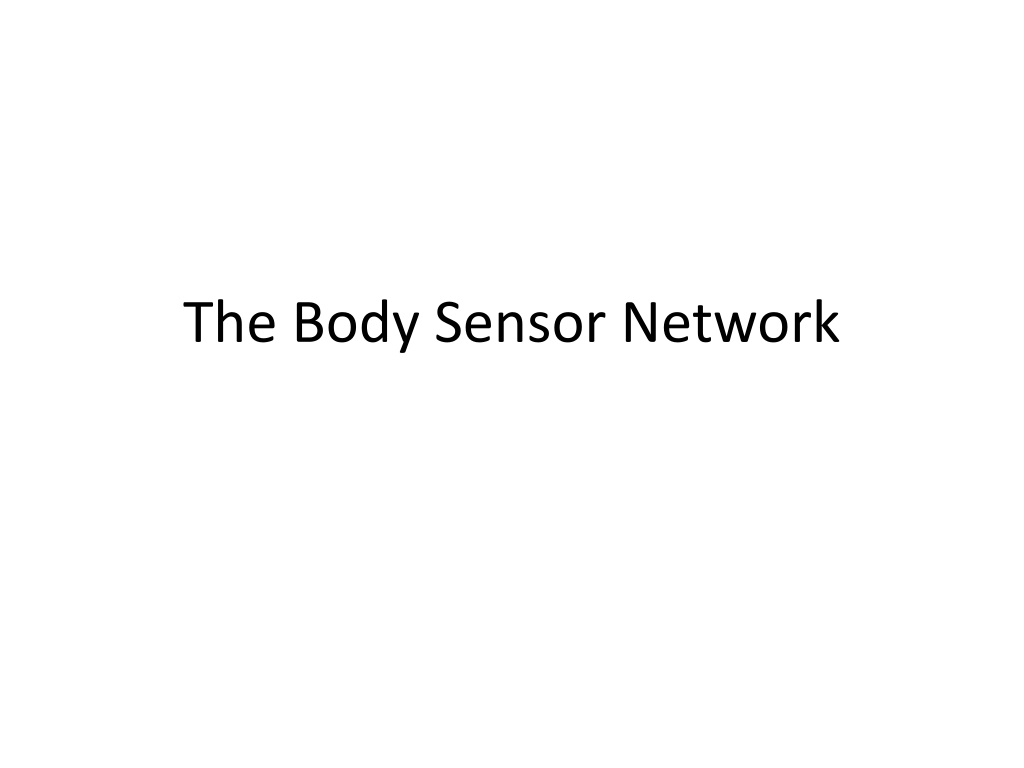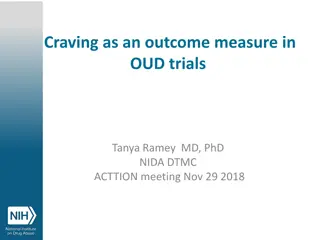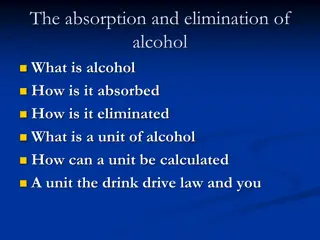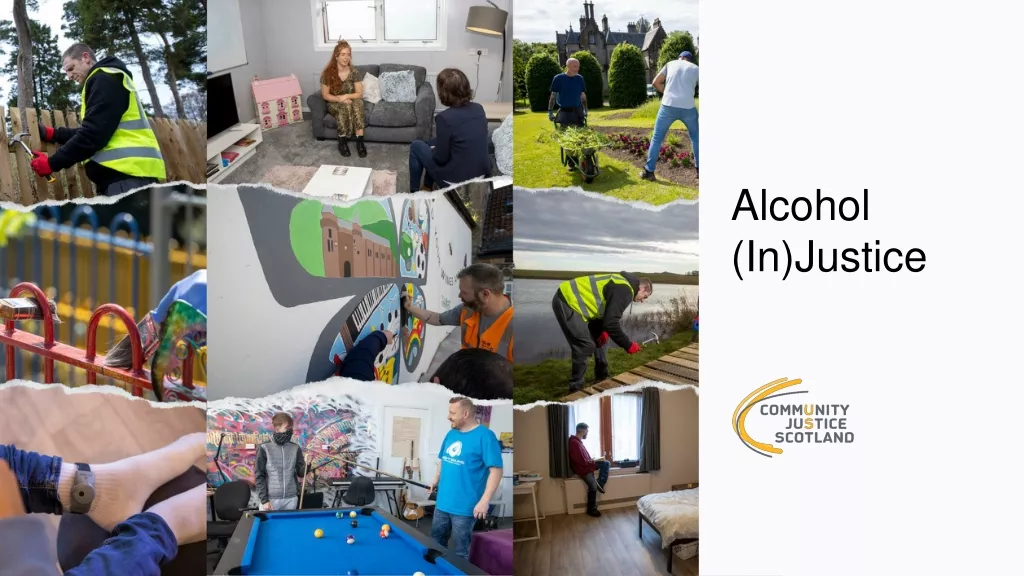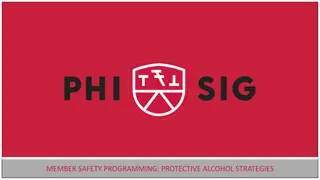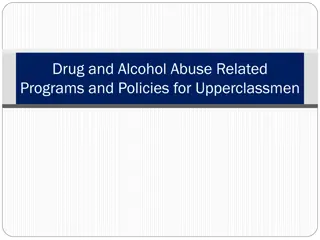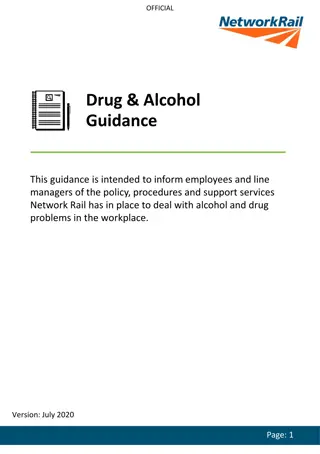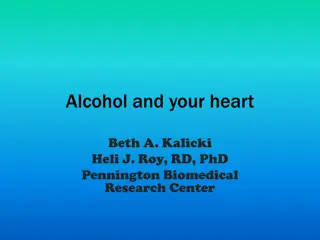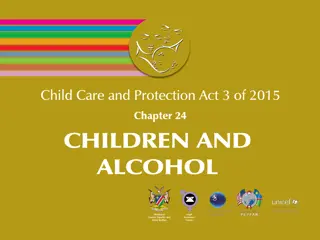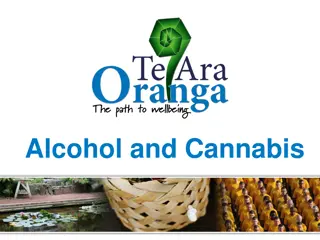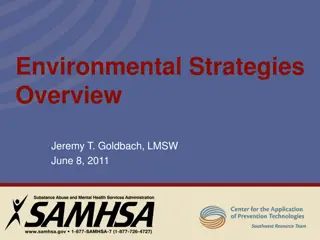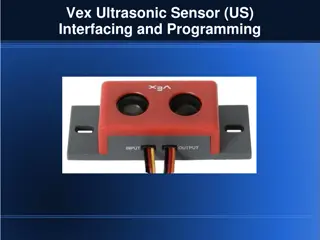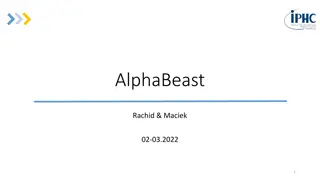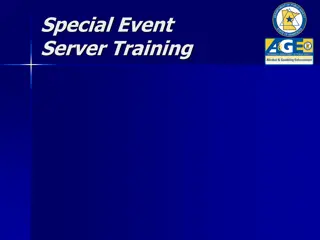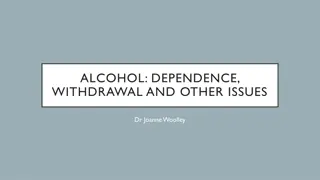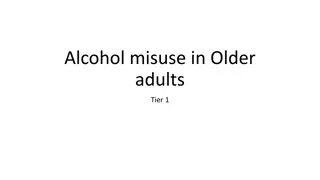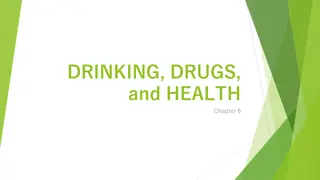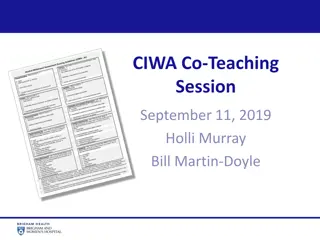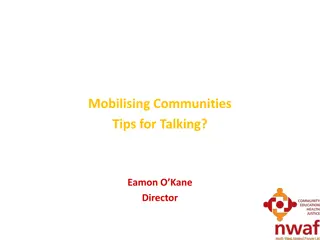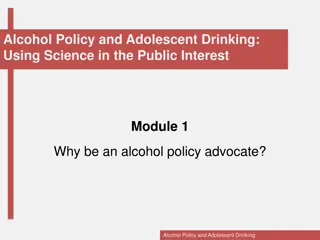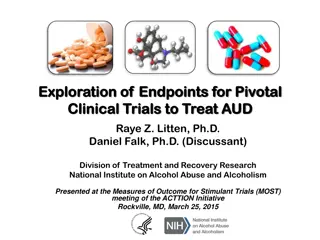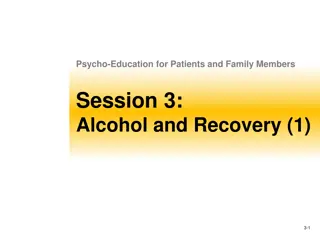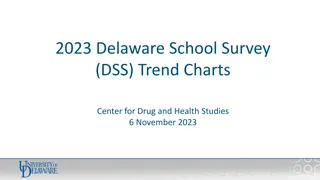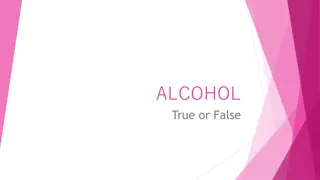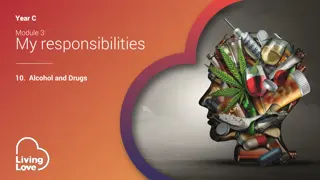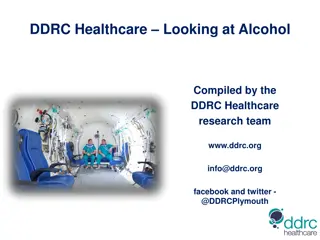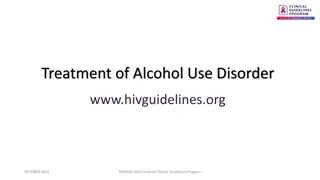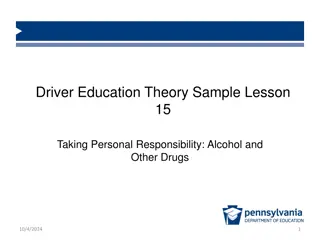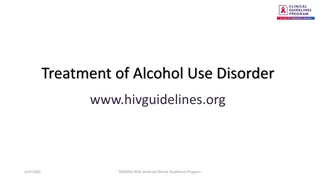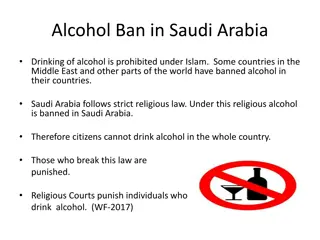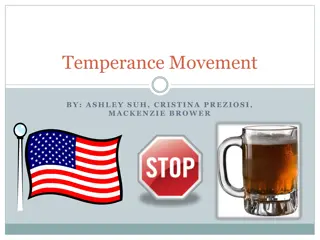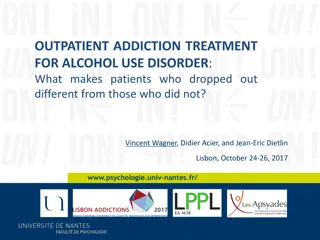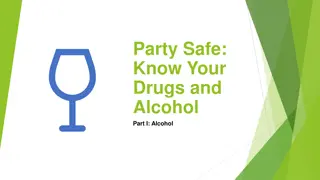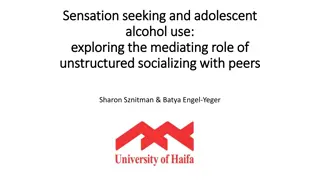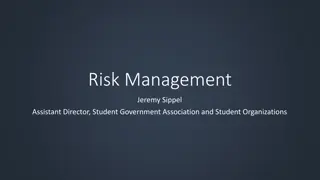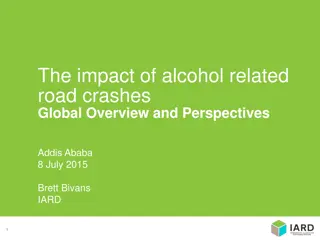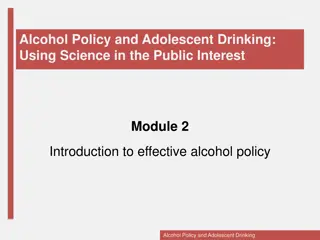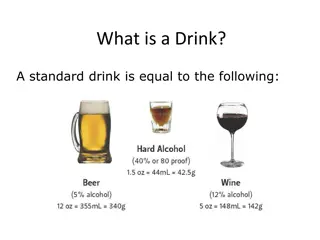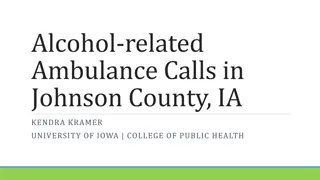Developing a Body Sensor Network Application for Identifying Affective Experiences and Craving for Alcohol
The project aims to develop an application that can identify affective experiences and physiological responses, particularly craving for alcohol. The application will differentiate between various mood states by collecting data which will be tested against a trained model. A system of survey scheduling and file writing is crucial for the development, with six modules for administering surveys on the phone. Survey questions are written in XML files and displayed using a SAX parser on the phone, with a simple API for event-driven parsing. Various sensors such as Q-Sensor and Equivital are utilized to collect data on temperature, respiration, heart rate, and more.
- Body Sensor Network
- Affective Experiences
- Craving for Alcohol
- Physiological Responses
- Survey Scheduling
Download Presentation

Please find below an Image/Link to download the presentation.
The content on the website is provided AS IS for your information and personal use only. It may not be sold, licensed, or shared on other websites without obtaining consent from the author. Download presentation by click this link. If you encounter any issues during the download, it is possible that the publisher has removed the file from their server.
E N D
Presentation Transcript
Project Overview Develop an application that can identifying affective experience physiological responses Especially those for craving for alcohol this application is capable of doing this Create classifiable data to differentiate between different mood states Data collected will be tested against a trained model
Survey A system of survey scheduling and file writing necessary in development There are six modules or item parcels are administered on the phone: I. Morning or Wake-Up Report Item Parcel-completed by all subjects each day II. Random Assessment / Prompt Item Parcel-completed by all subjects six times per day, and as prompted by physiological signatures. III. Initial Drinking Episode Item Parcel-completed only when an alcoholic drink is logged by participant IV. Drinking Follow-Up Assessments to be administered at 30 mins, 60 mins, 120 mins following the participants logging the first drink. V. Craving Episode Item Parcel-initiated by participant and completed only when participant craves an alcoholic drink. VI. Mood Dysregulation Episode Item Parcel- initiated by participant and completed only when participant experiences a significant change in mood state.
cont.. Survey questions were written as XML files Used SAX parser to display on phone Simple API for XML Event driven Parser when file reaches a tag give instructions for printing. Example questions:
Example questions HANGOVER/HANGOVER SYMPTOMS ALCOHOL URGE/CRAVING PAST 15 MINUTES (1 = not at all, 5 = extremely) PAST 15 MINUTES (1 = not at all, 5 = extremely) Have you had a HEADACHE? Have you felt NAUSEOUS? (1) Did you CRAVE A DRINK? SITUATION AND SETTING SMOKING URGE/CRAVING (1) In the PAST 15 MINUTES, WHO have you been with: (Check all that apply) Note: We will lock out other responses if no one is checked. PAST 15 MINUTES (1 = not at all, 5 = extremely) Did you CRAVE A CIGARETTE? _ no one _ partner/spouse _ friend/acquaintance _ other ALCOHOL INTOXICATION SYMPTOMS PAST 15 MINUTES (1 = not at all, 5 = extremely) Did you feel SLUGGISH? Did you feel BUZZED? Did you feel DIZZY? (2) WHERE is your current location? (Check all that apply) _ home _ work _ bar/restaurant _ outside _ other public place _ other
Sensor Q- Sensor Uses bluetooth file transfer protocol. Collects temperature, potion, skin conductance Wearability Also uses position for android however other android internal sensors are easily activated. Equivital -respiration, heart rate/variability, oxygen saturation
Results The following graphs show the different aspects of accelerometer data being classified into three states. Idle, walking, climbing stairs, Running and other activities attempted Connectivity problems, Bluetooth Subclasses: type, time, name, Qx1y1z1, Ax1y1z1
Results cont 1.accelormeter data confusion tables - Done with 97% accuracy 2.predictions for Physiological data: based on regular activities (no problems with emotion dysregulation or substance craving)?. heart rate.. heart rate variability temperature more physiological data....
Future work The work presented here only touches the surface of the requirements needed to get the experiment fully functional. refinement of the data classifiers. the sensors are capable of gathering vast amounts of physiological data like skin Classifying this data based off of survey data . use of time stamps still exists some file I/O and Bluetooth connectivity issues, more complex data. avoid data corruption. distribution of the program s surveys. The Graphical elements of the surveys may benefit from additional formatting as well to insure that
Conclusions In the information age, smartphones have become a way of life. We have only begun to tap into the true potential of this smartphone technology. Smart phones sensors are becoming exponentially more sophisticated and applicable to every day activities
References 1. Trull, T. Grant Proposal Remote wireless sensing network for the assessment of emotion dysregulation and craving for substance use. 2012 2. Miller, G. The Smartphone Psychology ManifestoPerspectives on Psychological Science 2012. 3. Affectiva Inc. 2012 Q-Sensors. http://www.affectiva.com/q-sensor/.
